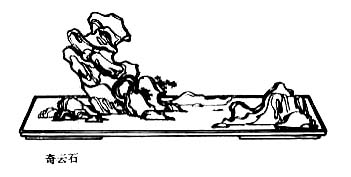Lun Yu 
 – The Analects of Confucius
– The Analects of Confucius
The Master discusses with his disciples and unveil his preoccupations with society. Tr. Legge (en), Lau (en) and Couvreur (fr).
Lunyu V. 15. (107)
An example of the principle on which honorary posthumous titles were conferred.
Tsze-kung asked, saying, "On what ground did Kung-wan get that title of WAN?" The Master said, "He was of an active nature and yet fond of learning, and he was not ashamed to ask and learn of his inferiors! – On these grounds he has been styled WAN."
Legge V.14.
Tzu-kung asked, 'Why was K'ung Wen Tzu called "wen"?'
The Master said, 'He was quick and eager to learn: he was not ashamed to seek the advice of those who were beneath him in Station. That is why he was called "wen".'
Lau [5:15]
Tzeu koung demanda pourquoi K'oung Wenn tzeu1 avait reçu après sa mort le nom de Wenn, le « Cultivé ». Le Maître répondit : « Bien qu'il fût très intelligent, il aimait à être enseigné ; il n'avait pas honte d'interroger même ses inférieurs. C'est pour cette raison qu'il a reçu le nom posthume de Wenn. »
Couvreur V.14.
Nabi menjawab, "Ia seorang yang pandai, tetapi suka belajar dan tidak malu bertanya sekalipun kepada bawahannya. Maka ia diberi gelar Pujangga".

The Analects of Confucius – Lun Yu V. 15. (107) – Chinese off/on – Français/English
Alias the Lunyu, the Lun Yü, the Analects, les Entretiens du maître avec ses disciples.
The Book of Odes, The Analects, Great Learning, Doctrine of the Mean, Three-characters book, The Book of Changes, The Way and its Power, 300 Tang Poems, The Art of War, Thirty-Six Strategies
Welcome, help, notes, introduction, table.
Index – Contact – Top























